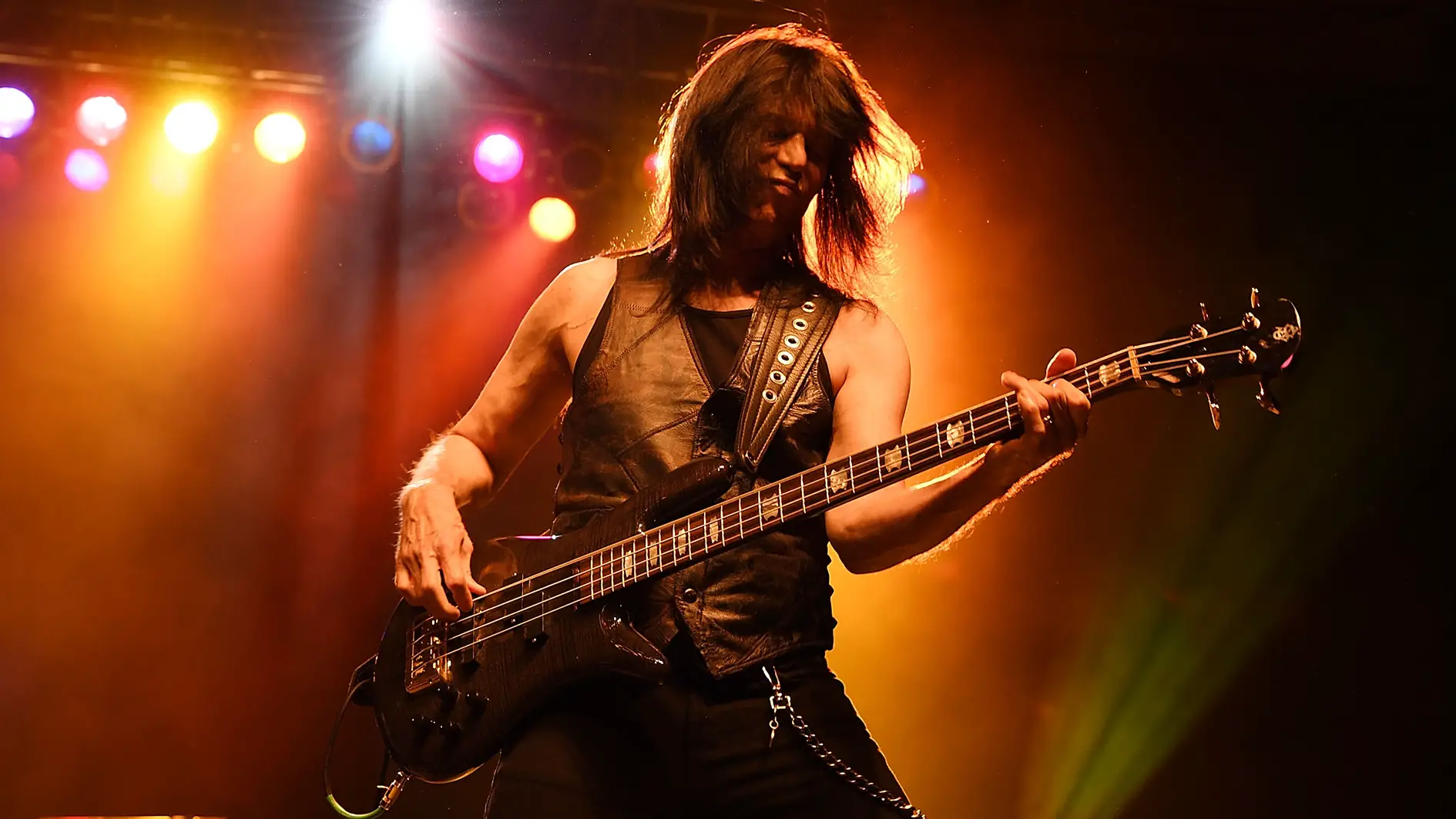
All images courtesy of Rudy Sarzo/Quiet Riot
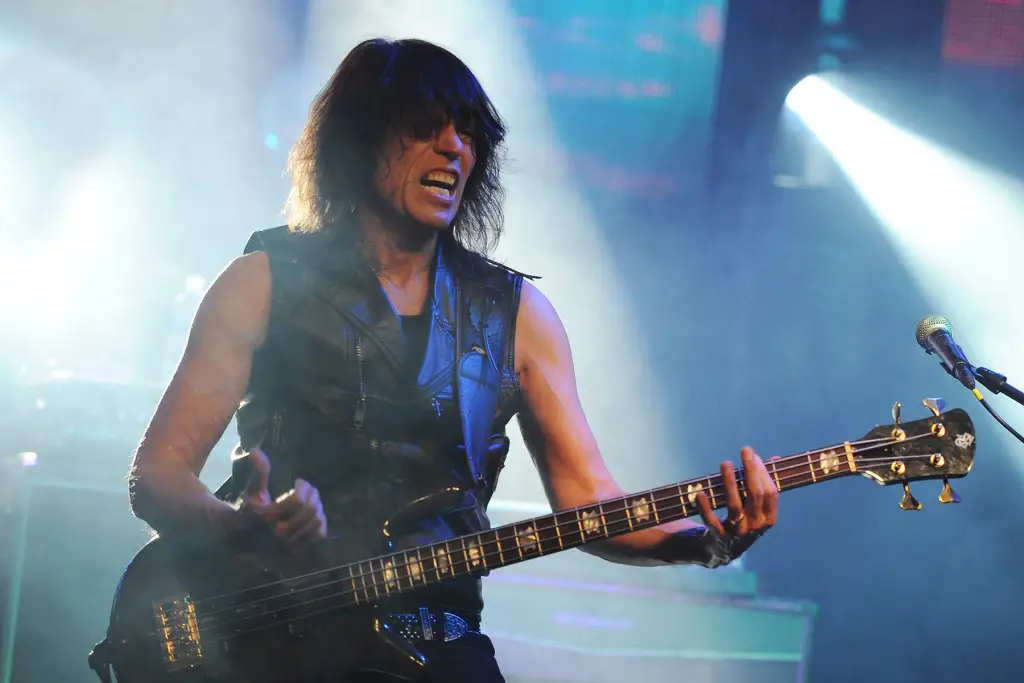
After an eighteen-year absence from Quiet Riot, Rudy Sarzo galvanized the rock community by announcing his return to the iconic heavy metal act late last summer.
The legendary bassist, who first joined Quiet Riot in 1978 and was part of the landmark Metal Health lineup, completes a new-look quartet that also includes veteran frontman Jizzy Pearl, guitarist Alex Grossi, and drummer Johnny Kelly.
Sarzo, who replaced bassist and founding member Kelly Garni in 1978, was originally part of a unit that included Drew Forsyth and the late Kevin DuBrow and Randy Rhoads, but it wasn’t until five years later – with a revamped lineup – that the band achieved commercial success.
Widely considered to be a watershed album responsible for ushering in a new wave of hard rock and heavy metal in the early 1980s, Metal Health became the first heavy metal album to soar to the No. 1 spot on the Billboard 200 and has gone on to sell over six million copies worldwide.
The groundbreaking effort is responsible for generating two Billboard hits that remain relevant rock anthems to this day, “Cum On Feel the Noize” and “Metal Health.”
For Sarzo, who also played on the 1984 follow-up album Condition Critical, rejoining his flagship band is critical on many levels. While his reemergence captures the spirit and essence of the band’s foundation, Sarzo’s purpose has never been clearer when he takes the stage: Honor his fallen bandmates and carry on the legacy of Quiet Riot.
I recently caught up with Rudy to discuss his return to Quiet Riot, meeting Frankie Banali, and more.
Andrew:
Thanks for taking the time, Rudy. Since our last conversation, a lot has taken place, most notably your return to Quiet Riot, which you described as “coming home.” What led to that decision?
Rudy:
Frankie, before he passed away, he requested that I return to the band. I mean, it’s simple, but then again, there’s a lot of layers to it, emotionally. Quiet Riot has been my home, really, since 1978 when I first joined with the Randy Rhoads, Kevin DuBrow, and Drew Forsyth version of the band, prior to Metal Health. When I say my home, any musician out there would probably agree with me that at a certain point in your career, you find that group of guys or girls that have a collective consciousness. All that really matters at that moment, when you guys or girls are together, is the music. You all feel the same way; you all like the same bands; you listen to the same music. It doesn’t happen often in your journey as a musician. A lot of times you join situations where maybe the situation is already put together, and you might not agree a hundred percent about what everybody’s musical direction is all about. But in Quiet Riot, for me, that was not the case; everybody in that band had the same goals, the same vision of what we wanted to do collectively and individually.
Andrew:
What importance do you place on honoring Frankie and Kevin and carrying on the legacy of Quiet Riot?
Rudy:
When I go on stage with Quiet Riot, it’s actually the first time that I actually have a mission when I go on stage, which is to celebrate the memory of those who passed – Frankie Banali, Kevin DuBrow, Randy Rhoads – that I played with. The 80s to me, you know, every decade has a certain consciousness to it that really has an effect on society; the music was basically the soundtrack for how we were in the 80s, the music that we made with the Metal Health version of Quiet Riot. The music that we made with the Randy Rhodes version of the band was a reflection of how things were in the 70s. So, to be able to go on stage and celebrate with the audience, the 80s consciousness is also a big rewarding experience for me.
Andrew:
Rudy, your relationship with Frankie was first established in the early 70s. Do you remember how you met?
Rudy:
It’s always been about music. Any time you meet a musician, the first thing you do if you wanna go beyond, “Hey, nice to meet you” and a handshake, it’s about your taste in music. That’s always been the common denominator, especially in the early days; meeting a musician was like, “Who do you like? What are you into?” And I had the advantage when I first met Frankie, that I had seen him play the night before. His band was actually a local South Florida band called Ginger, and they were a last-minute addition to the Ziggy Stardust and The Spiders From Mars tour on the date of the show, in Dania, at a place called Pirate’s World. So, I went over to see Bowie, and I come in and there’s an opening band. I watched them play and I’m blown away by the drummer. I had no idea who these guys were. I thought they would have been on tour with Bowie through the whole thing; I had no idea. I didn’t even know what their name was.
I’m really impressed by this drummer, so the next day I’m at the local rock hangout called the Flying Machine in Fort Lauderdale. I’m talking to some people – it’s my birthday, actually, so I’m there celebrating my birthday – and somebody that I’m talking to said, “Hey! That’s one of the guys from the band that opened up for Bowie last night, Ginger.” So, I just go over to Frankie. I had some cheap seats at the show, so I really couldn’t see his face really well. And he was behind this massive drum kit, so even if I could, I couldn’t see him anyway, what he actually looked like. So, I introduce myself and start raving about the band and about the drummer – I thought he was the bass player. So, he lets me talk and he’s smiling and then he puts out his hand, shakes my hand, and says, “Hi, I’m Frankie. I’m the drummer in Ginger.” And from then on, we kept talking and found we had a lot of musical tastes in common and we started playing together. Unbeknownst to me, that was the last show that band did, the night before. That was it; they broke up. So, we started playing together.
We met on my birthday, November 18th, 1972. And, ten years later, after Frankie and I had been playing together in South Florida, we moved to Chicago to play that circuit. Then we moved to L.A., we lived together, and played that circuit. We ran out of money, and I went out and came back to L.A. doing some other things, but we were always putting little bands together here and there in between. In that era, in the late 70s when I was playing with Quiet Riot, Frankie was doing other shows around town; he was playing with Steppenwolf; he was doing recordings with Billy Idol. He was just basically in survival mode. He had also done the Hughes/Thrall record, so, you know, he was always in demand as a drummer.
So, by the time that I got a phone call from Kevin – I’m fast-forwarding to 1982 now – so, ten years after I met Frankie, I got a call from Kevin, who I had been playing with. Right up until I joined Ozzy, I was living with Kevin; I was playing in his band, DuBrow. There was a song that he wrote during that period, right after Randy left for Ozzy in 1979. [Kevin] wrote a song called “Thunderbird,” and I was on a break from Ozzy at that time, and he says, “Hey, you wanna come down and play bass on ‘Thunderbird’ for a possible record that we’re doing here?” You know, there was no record deal in place yet or anything like that; it was basically a production deal at the time. So, I said, “Sure.” So, I come down and of course, Frankie is playing drums and Carlos, who I had met – we did not hang out – but we had met when either Quiet Riot or DuBrow did some shows with Carlos’ band called Snow. So, I went in and recorded the track “Thunderbird” and since I knew the song – I played it when I was in DuBrow – I played on the record. It’s my bass line on the song; I finished the song in about two takes. So, there was a lot of time left in the session and they go, “Hey! Do you remember ‘Slick Black Cadillac’?” … “Yeah.” We go over it a couple times and recorded it. A couple of those songs from DuBrow – that’s what the band was called at the time – went down on the Metal Health record as a Quiet Riot record. So, I did most of my bass playing, except for two songs, on Metal Health, which were recorded by Chuck Wright – “Don’t Wanna Let You Go” and “Metal Health.” I played on the rest of the record.
And I was on a break from Ozzy, so I’m still in Ozzy while I’m doing this, and I thought those songs were gonna be demos. When records were made back in the day, you would go into the Record Plant, Cherokee, whatever. Those were like real fancy studios. You know, big time. And we were actually making this music at what was almost like a demo studio. So, I thought, “Well, you know, we’re gonna come back and re-record all these songs if this ever becomes a record.” And no; those songs that were tracked at Pasha [Music House] is what you hear on the record.
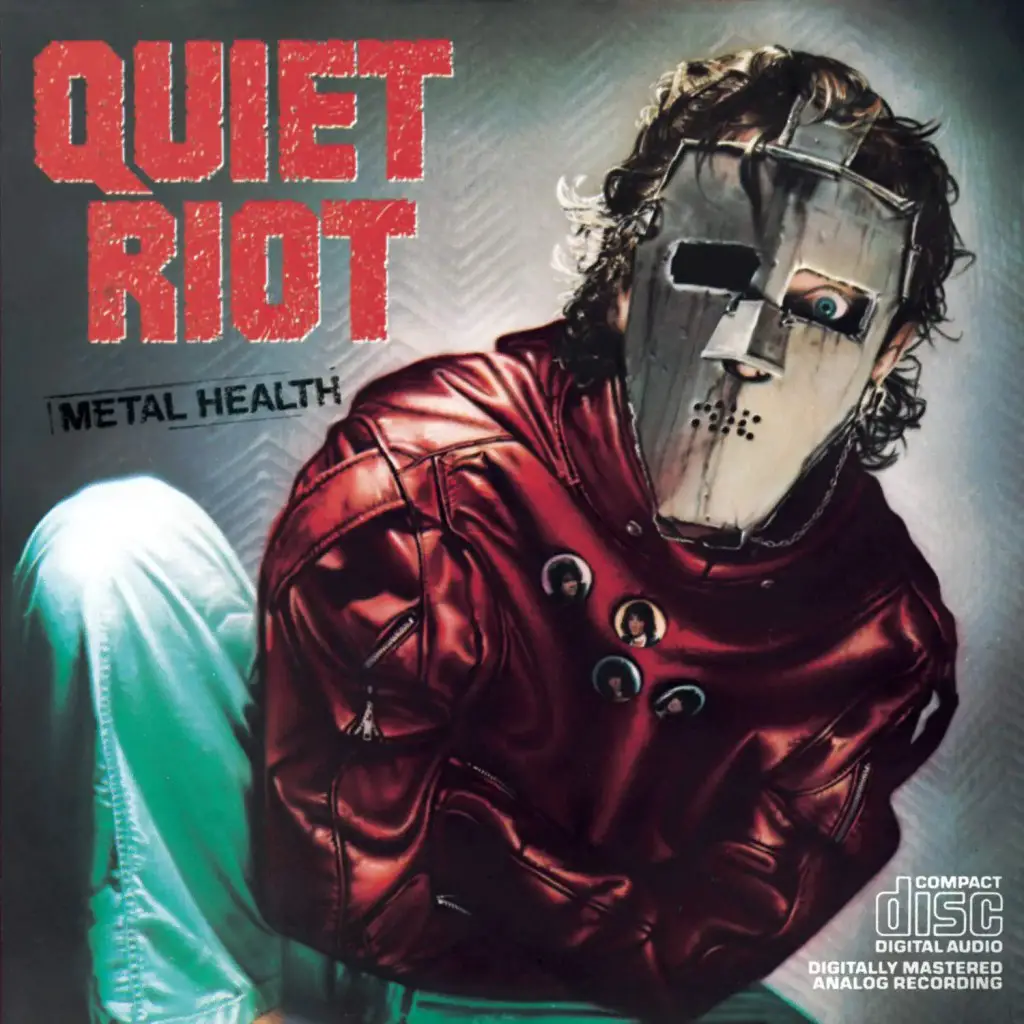
Andrew:
With you and Carlos [Cavazo] being the lone surviving members from the Metal Health lineup, was there ever any talk about bringing Carlos back into the fold?
Rudy:
You know, all I know is that Frankie requested me to come back. And beyond that, I have no real knowledge of anything else.
Andrew:
I believe your first show with Jizzy, Alex, and Johnny was at the Groove Music Hall in Virginia. What was it like playing your first show with Quiet Riot since 2003?
Rudy:
Well, it was interesting on many levels. I knew that I had to somehow find my way back into what it was like being away from the band for over twenty years, especially since Frankie and Kevin were not there. So, it was kind of like a way of learning how to play these songs with the new members. Johnny Kelly, who was the drummer in Danzig and Type O Negative, he was handpicked by Frankie to come and take his place behind the kit. I mean, when I say take his place, to me, from Randy, Randy was completely irreplaceable in both Quiet Riot and Ozzy Osbourne. Nobody could take his place; nobody could take Kevin’s place; nobody could take Frankie’s place. But we go on stage with outstanding musicians. The most that I can ask of anybody that I play with is for them to be themselves. I mean, that to me is the ultimate situation.
Yes, Kevin is not here, but we got Jizzy Pearl. And he’s the real deal. We both come from the same place on Sunset Strip. He was there; he knows what it’s like. And that is awesome to be able to go on stage, to be on the road with somebody who really understands what the spirit of Quiet Riot is all about. So, it makes an incredibly strong group. Especially, Alex Grossi has been in the band – Kevin picked him – he was playing with Kevin even before Quiet Riot was reformed back in maybe 2004. He was playing with Kevin and doing some solo stuff. So, he’s been part of that family for twenty years now. So, I go on stage feeling very proud to be a part of this unit, with these band members.
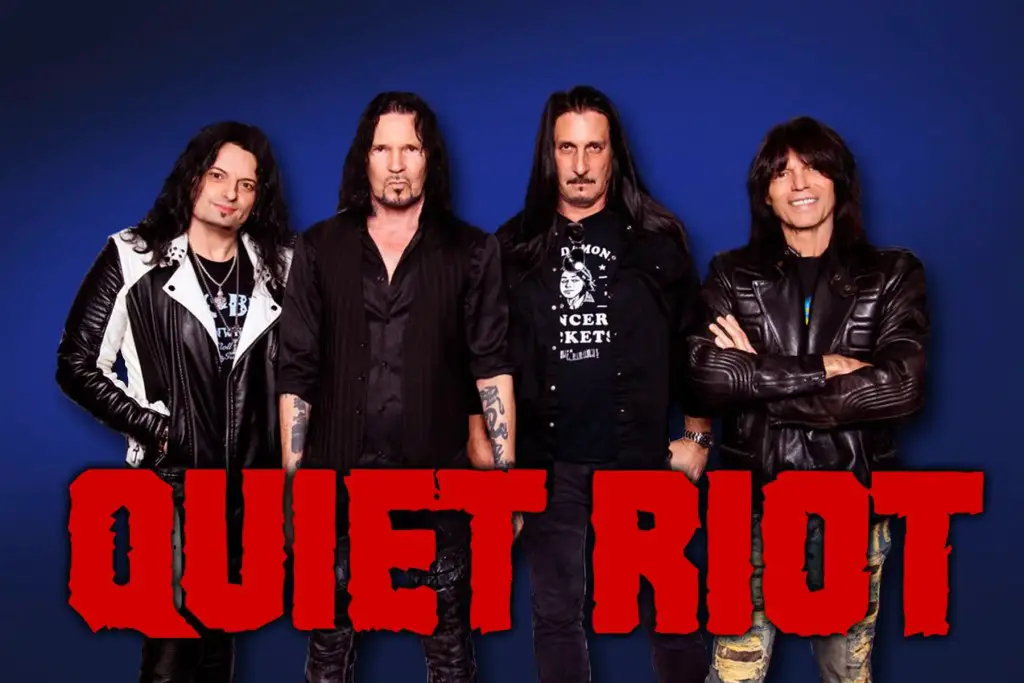
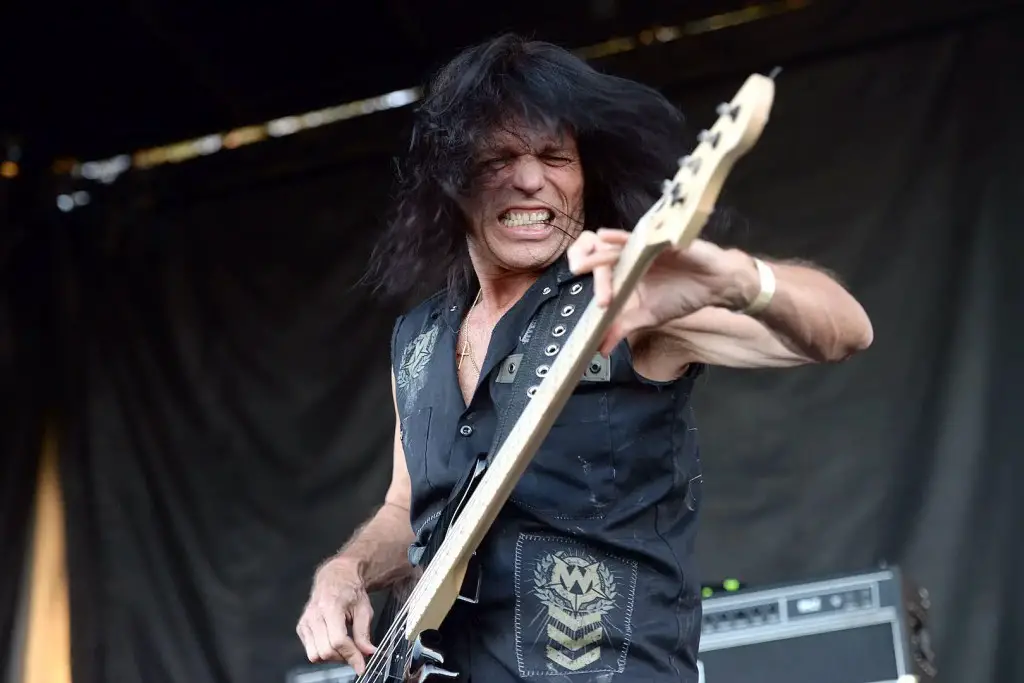
Andrew:
You’d obviously never played with anyone from the current Quiet Riot lineup prior to rejoining. How quickly did it take for the band to gel and form that cohesiveness?
Rudy:
Well, you know, when I first started playing with them back in November, I knew it would be a bit challenging because we had these dates in the books prior to me joining the band. What we really needed to do was is to show the world what the band sounded like now and what we were all about; it’s all about the celebration of Quiet Riot, and Frankie Banali, Kevin, and Randy. Now, the challenge was the fact that I had been playing with other styles of music. My personal challenge; this goes beyond the other guys. The other guys have been there for a while; they knew the songs in and out. I had to re-learn the songs because it’s been a while, and I’ve been playing with other musicians and other bands. But I needed to rediscover myself again. And when I recorded those songs back in ’82 – forty years ago – I was a different musician. Forty years later, we have looked at the music a little bit differently. But then, we’re talking about something that was done forty years ago. It’s a snapshot; it’s a photograph of what we were like, what we sounded like, what the era was like, technology, everything. But I like to bring in something new and something fresh when I play, so it was a matter of trying certain things out. The challenge was that at the time we only had like one show every month, so it took me a while to get my gear together, [and dial in] the sound.
Me going back to Quiet Riot in the 70s, there was a certain sound that I had with my bass tone that was completely different to forty years later; the evolution of the bass sound. So, I needed to make a decision: What do I feel comfortable playing on stage? It went back to basically, a 70s-type tone; more passive. I’m not using a pre-amp on my bass, and there’s a certain choice of notes; a certain way of playing it. So, I had to really take a good inventory of what I was bringing back to the table as I was rejoined Quiet Riot.
Andrew:
Alex had recently mentioned there is new music ready to go. Are you able to expand on that at all?
Rudy:
No, not really. It’s a work in progress, and you’re gonna have to hear it when it’s ready.
Andrew:
Last one. Quiet Riot is getting ready to hit the road for an upcoming tour, so I wanted to give you the opportunity to comment on that if you’d like.
Rudy:
Basically, our touring season kicks off next weekend. We have been doing shows, and I can tell you right now that I’m very pleased with the way that I am [Laughs]. See, when I went back in the band, I wasn’t worried about the other guys; Jizzy, Johnny, and Alex have been doing it for a while. I’m just like the old-new kid in the band. So, I was just concentrating on me … “Okay, how can I get back to who I was, a thousand percent Quiet Riot?” Rudy from Quiet Riot. In every band that I’ve been in, I’ve always brought some Quiet Riot with me. But now it’s like, “Uh-uh. You’re gonna be a thousand percent Rudy from Quiet Riot because you’re finally back home.” So, that’s what I’ve been working on since our first show that we did. And I gotta tell ya, I’m really, really, really comfortable. And I always know that every time you do a show, that there’s a next level that you can take it to. So, I am really looking forward to the future of Quiet Riot.
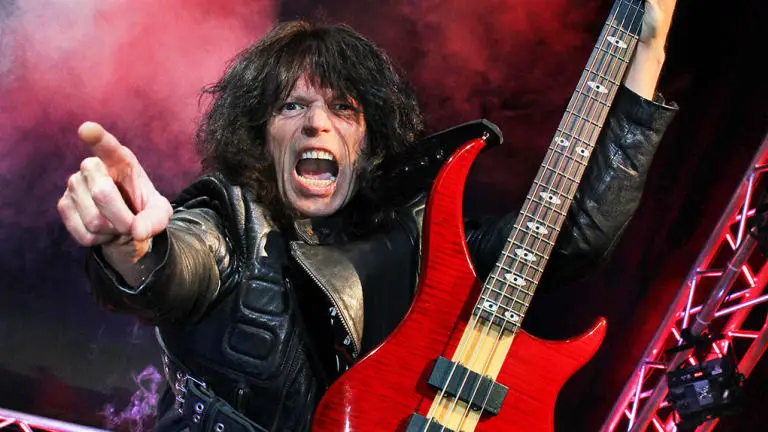
Interested in learning more about Quiet Riot? Hit the link below:
Be sure to check out the full archives of Shredful Compositions, by Andrew DiCecco, here: https://vwmusicrocks.com/shredful-compositions-archives/
